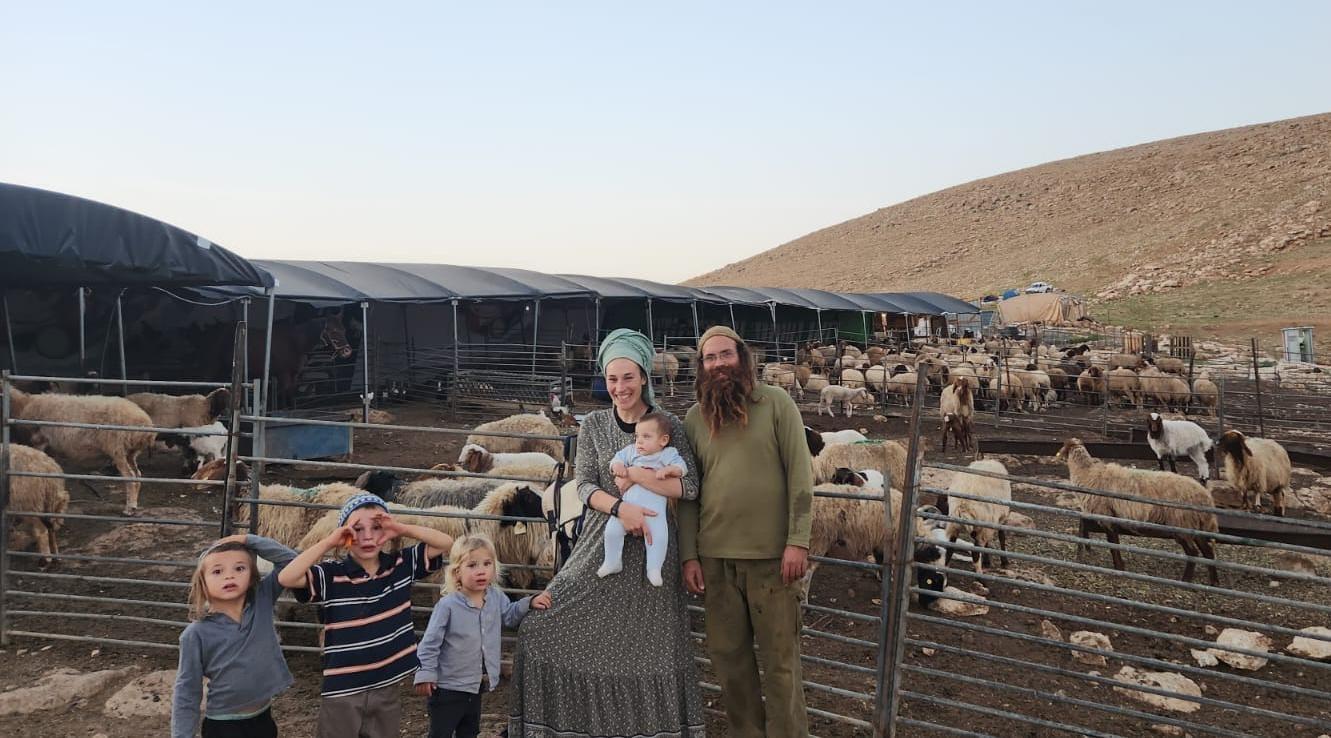



The High Court of Justice on Monday urged the Israel Defense Forces and the Israel Police to ensure that the residents of a Palestinian Bedouin hamlet, Wadi as-Seeq, who fled in the face of persistent settler violence in October 2023, could return home.
The move came in response to a petition to the court filed by the Torat Tzedek organization a year ago, demanding the demolition of an illegal settlement outpost built just 200 meters away from Wadi as-Seeq. Residents said they had been routinely harassed and attacked by the settlers.
The outpost was established by a prominent and radical settler activist who only last week, was involved in the establishment of another illegal outpost just 100 meters from a Palestinian Bedouin dwelling, leading to the flight of that community as well.
Although the judges had tough words for the state officials in the Wadi as-Seeq case, and insisted that the IDF and police enable the safe return of the Palestinians, they declined to order the Civil Administration to immediately demolish the illegal outpost.
The residents of Wadi as-Seeq, which lies some 20km east of Ramallah, fled in mid-October 2023 following heightened settler harassment and violence in the aftermath of the October 7 atrocities perpetrated by Hamas.
Attorney Tamir Blank, representing the Palestinian villagers, said in response to the court proposal that his clients were worried about returning to their hamlet if the principal source of violence against them, the illegal settlement outpost, would remain in place so close to their homes.
The outpost in question is dubbed Hamahoch and was established in early 2023 by Neriya Ben Pazi, a radical settler activist who has been sanctioned by the US and the UK for what those countries have said are his activities displacing and harassing Palestinians.
The Trump administration, however, abolished all sanctions imposed on extremist settlers by the Biden administration. Ben Pazi is a central activist involved in establishing numerous illegal farming outposts in the West Bank, the goal of which is to assert control over large swathes of land by grazing livestock on it and displacing local Palestinians.
Just last week, Ben Pazi was photographed entering a new illegal settlement outpost established just 100 meters from Mughayyir al-Deir, a dwelling of around 150 Palestinian Bedouins who have fled their hamlet since the outpost was established just days ago.
Mughayyir al-Deir is less than three kilometers south of Wadi as-Seeq.
The Torat Tzedek organization filed a petition to the High Court in March 2024 requesting that it order the IDF and police to enable the villagers to return, and for the Civil Administration to raise the demolition of the Hamahoch outpost on its list of priorities.
Blank told the court on Monday that the villagers were afraid to return to Wadi as-Seeq as long as the Hamahoch outpost remained in place, since even if the police were to respond to violent incidents, it would be impossible for them to protect the villagers given the proximity of the illegal outpost.
The state attorney said that demolishing the outpost was a matter of priorities, and that because there had been a low number of complaints regarding violent incidents in Hamahoch since October 2023, the outpost was not a high priority.
However, Judge Khaled Kabub pointed out that the low number of violent incidents regarding the outpost was due to the fact that residents of Wadi as-Seeq had not been present in the hamlet for 18 months.
“The [military] commander is obligated to enforce the law to allow them [the villagers] to live without disturbance, without invasion, without harassment, and without violence,” demanded Kabub of the attorney for the state.
“At the end of the day, they want to live under law and order. What is so unreasonable about that?” he demanded.
Judge Yael Wilner suggested to enable the residents to return with protection and “see what happens.” Judge Ruth Ronen added that if “friction” subsequently occurs then the claims by Wadi as-Seeq residents would be stronger and there would be greater justification for advancing the demolition of Hamachoh as a priority for the Civil Administration.
Blank’s complaints about the villagers’ concerns — they would be subjected to violence upon their return if the outpost was not demolished — were not well received by the judges.
Wilner pointed out that the outpost was built on state land, and that the state therefore has the discretion to allow its establishment, if it so pleases, although she repeated the state’s obligation to protect the residents of the hamlet.
Blank requested as an alternative that the court order the hamlet to be provided with protection by security services. The judges refused, owing to the severe shortage of manpower for the military and security services at present.
The state attorney said the IDF would consider establishing a closed military zone around Wadi as-Seeq, which would make it illegal for Israeli civilians to enter and make enforcement against settler harassment easier.
“I don’t see a better mechanism than this, given the facts we have. If the harassment and attacks continue, then they need to come with more concrete footage and data,” said Kabub, adding that the court would not cast judgment on the discretion of the military commander regarding what demolition orders should take priority.
Blank said that he would have to discuss the issue with the residents of Wadi as-Seeq before agreeing to the court proposal, saying they simply wanted to return to their homes in peace.
“They want to return to safety, they don’t want to be a point of friction,” he said.
The petitioners have 14 days to inform the court of their decision.

